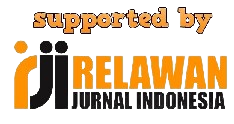Application of Naïve Bayes for Classification of Criteria for Potable Water with the CRISP-DM Method
DOI:
https://doi.org/10.31294/p.v25i1.1754Keywords:
Water Quality, Naïve Bayes, CRISP-DM, Rapidminer, Google CollabAbstract
With water, living things can do various things easily. The adequacy of water is also important in maintaining human health. Water can be said to be feasible if its content is in accordance with the feasible criteria. From the dataset obtained regarding the feasibility of water for this study, it will calculate the accuracy value obtained using the Naive Bayes algorithm. To simplify the process of processing research data this time using the CRISP-DM methodology which is a stage for data mining. The study uses two tools, namely Rapidminer and Google Collab to compare their accuracy values. By using the two tools in implementing the Naive Bayes algorithm on a potable water quality dataset, an accuracy of 62.8% is obtained. This value is accurate enough to predict the quality of drinking water.
References
Alfiah, N. (2021). Klasifikasi Penerima Bantuan Sosial Program Keluarga Harapan Menggunakan Metode Naive Bayes. Jurnal Teknologi Informasi, 16(1), 32–40. https://doi.org/10.35842/jtir.v16i1.386
European Union. (2017). Sustainable Development Goals. Retrieved from https://www.sdg2030indonesia.org
Hasanah, M. A., Soim, S., & Handayani, A. S. (2021). Implementasi CRISP-DM Model Menggunakan Metode Decision Tree dengan Algoritma CART untuk Prediksi Curah Hujan Berpotensi Banjir. Journal of Applied Informatics and Computing, 5(2), 103–108. https://doi.org/10.30871/jaic.v5i2.3200
Irnawan, F. D., Hidayah, I., & Nugroho, L. E. (2021). Metode Imputasi pada Data Debit Daerah Aliran Sungai Opak, Provinsi DI Yogyakarta. Jurnal Nasional Teknik Elektro Dan Teknologi Informasi, 10(4), 301–310. https://doi.org/10.22146/jnteti.v10i4.2430
Khakim, E. N. R. (2022). Perbandingan Algoritma Klasifikasi Data Kesejahteraan Sosial Kabupaten Bantul. Jurnal Ilmiah Sistem Informasi, Teknologi Informasi Dan Sistem Komputer, 17(2), 91–100.
Nurlia, E., Jajuli, M., & Purnamasari, I. (2021). Penerapan Naïve Bayes Untuk Klasifikasi Tingkat Risiko Diagnosis Gigi Di Uptd Puskesmas Cingambul. JIKO (Jurnal Informatika Dan Komputer), 4(2), 127–132. https://doi.org/10.33387/jiko.v4i2.3190
Primajaya, A., Sari, B. N., & Khusaeri, A. (2020). Prediksi Potensi Kebakaran Hutan dengan Algoritma Klasifikasi C4.5 Studi Kasus Provinsi Kalimantan Barat. Jurnal Edukasi Dan Penelitian Informatika (JEPIN), 6(2), 188–192. https://doi.org/10.26418/jp.v6i2.37834
Saputra, P. S., Dantes, G. R., & Gunadi, I. G. A. (2021). Perbandingan Algoritma Fuzzy C-Means Dan Algoritma Naive Bayes Dalam Menentukan Keluarga Penerima Manfaat (Kpm) Berdasarkan Status Sosial Ekonomi (Sse) Terendah. JST (Jurnal Sains Dan Teknologi), 10(1), 1–8. https://doi.org/10.23887/jstundiksha.v10i1.23340
Saragi, N. R., Sembiring, A., & Nurhayati. (2022). Sistem Pakar Mendiagnosa Kelayakan Air Minum untuk Dikonsumsi menggunakan Metode Certainty Factor pada PDAM Tirta Sari Kota Binjai. Jurnal Citra Sains Teknologi, 2(1), 23–26.
Sari, Y. S. (2021). Penerapan Metode Naïve Bayes Untuk Mengetahui Kualitas Air Di Jakarta. Jurnal Ilmiah FIFO, 13(2), 222–228. https://doi.org/10.22441/fifo.2021.v13i2.010
Tempola, F., Muhammad, M., & Khairan, A. (2018). Perbandingan Klasifikasi Antara KNN dan Naive Bayes pada Penentuan Status Gunung Berapi dengan K-Fold Cross Validation. Jurnal Teknologi Informasi Dan Ilmu Komputer, 5(5), 577–584. https://doi.org/10.25126/jtiik.201855983
Downloads
Published
How to Cite
Issue
Section
License
Copyright (c) 2023 Ibnu Alfitra Salam, Katon Wahyudi Putra, Sisca Yuliatina, Betha Nurina Sari

This work is licensed under a Creative Commons Attribution-ShareAlike 4.0 International License.
Paradigma is an open-access article distributed under the terms of the Creative Commons Attribution-ShareAlike 4.0 International License (https://creativecommons.org/licenses/by-sa/4.0/) , This license permits: Share — copy and redistribute the material in any medium or format for any purpose, even commercially, Adapt — remix, transform, and build upon the material for any purpose, even commercially.




















 Jl. Kramat Raya No.98, Kwitang, Kec. Senen, Kota Jakarta Pusat, DKI Jakarta 10450
Jl. Kramat Raya No.98, Kwitang, Kec. Senen, Kota Jakarta Pusat, DKI Jakarta 10450
